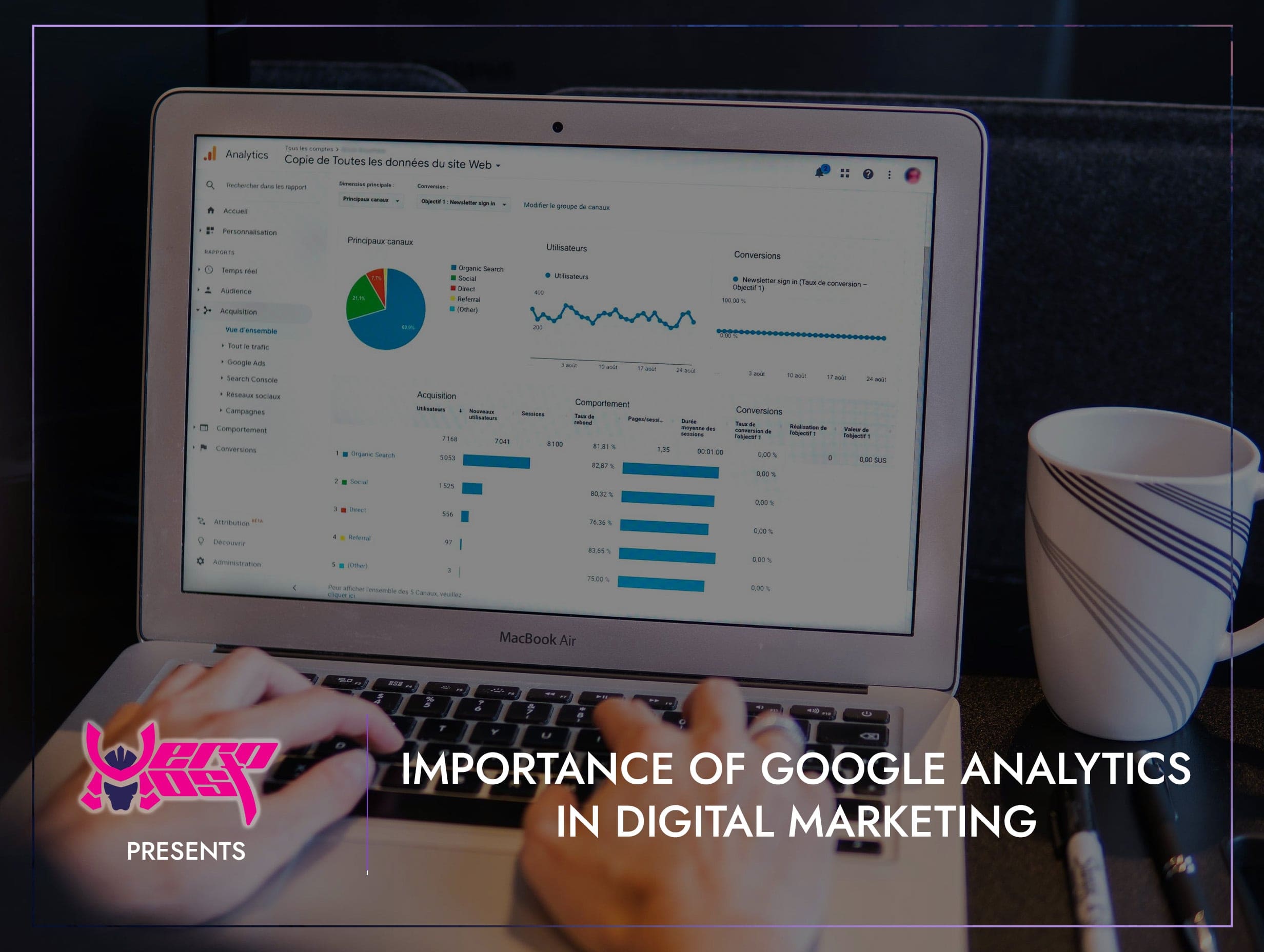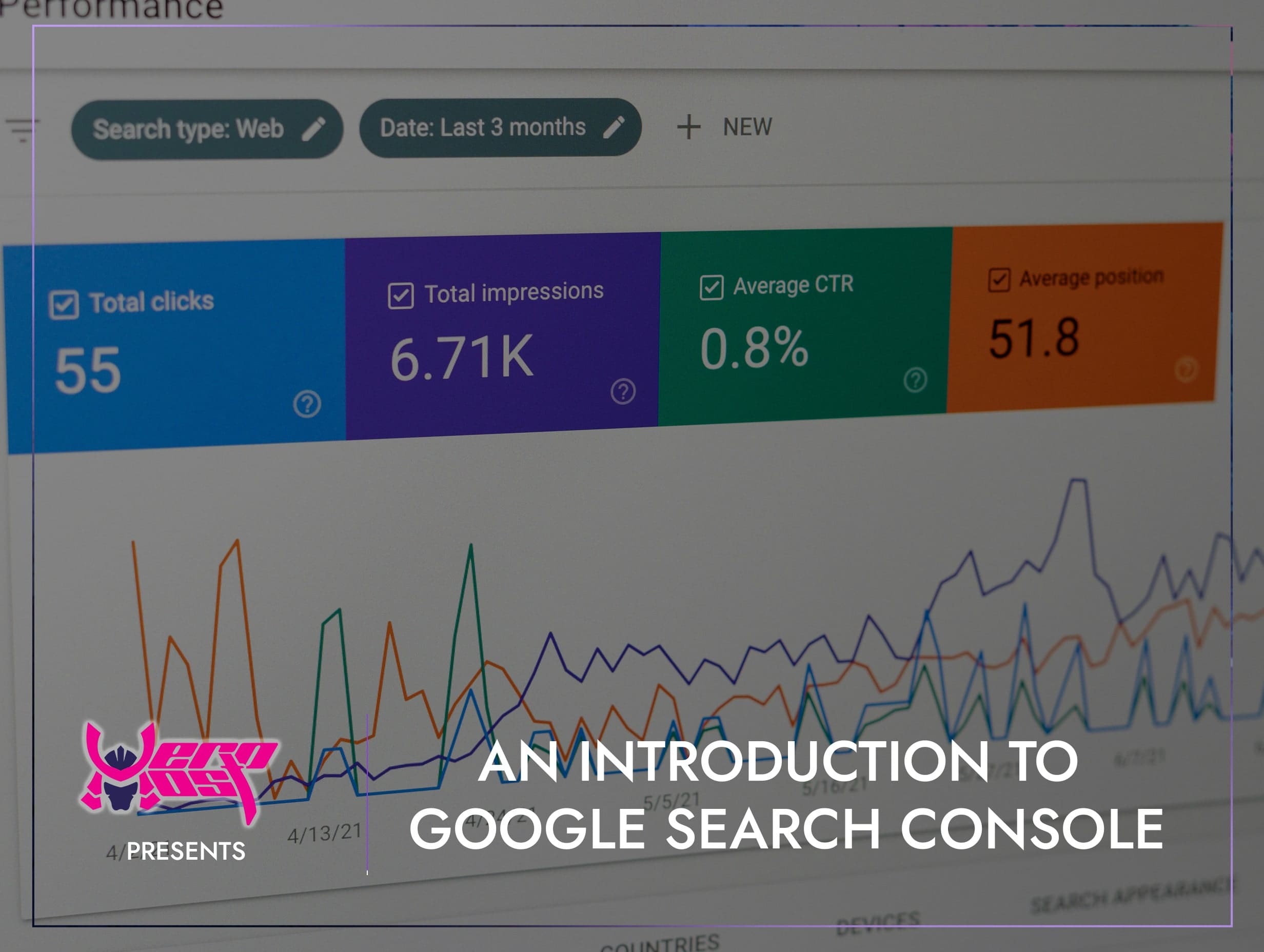Importance of Google Analytics In Digital Marketing
- Home
- Google Analytics & Search Console
- Importance of Google Analytics In Digital Marketing

- Mikey Ryu
- May 23, 2024
- 0
Importance of Google Analytics In Digital Marketing
In the ever-evolving world of digital marketing, data is king. The ability to measure, analyse, and interpret data is crucial for creating effective marketing strategies and making informed decisions. Among the myriad of tools available for this purpose, Google Analytics stands out as one of the most powerful and versatile. This blog explores the importance of Google Analytics in digital marketing, highlighting its features, benefits, and how it can transform your digital marketing efforts.
Understanding Google Analytics
Google Analytics is a web analytics service offered by Google that tracks and reports website traffic. Launched in November 2005, it has since become the most widely used web analytics service on the internet. By integrating Google Analytics with your website, you can gain insights into how users find, interact with, and leave your site. These insights are invaluable for optimising your website and improving your digital marketing strategies.
Key Features of Google Analytics
Real-Time Data:
Google Analytics provides real-time data on the number of visitors to your site, their geographic location, the pages they are viewing, and much more. This feature allows marketers to monitor the immediate impact of their campaigns and make timely adjustments.
Audience Reports:
These reports provide detailed information about the visitors to your website, including demographics, interests, behaviour, and technology used. Understanding your audience helps in tailoring your marketing efforts to meet their needs and preferences.
Acquisition Reports:
These reports show how users arrive at your website, whether through search engines, social media, direct traffic, or referral links. Knowing the most effective channels can help allocate marketing resources more efficiently.
Behaviour Reports:
These reports analyse user behaviour on your website, including which pages they visit, how long they stay, and their navigation path. This information is crucial for improving user experience and website design.
Conversion Tracking:
Google Analytics allows you to track conversions, whether they are sales, form submissions, or other valuable actions. This feature is essential for measuring the success of your marketing campaigns and determining ROI.
Benefits of Using Google Analytics in Digital Marketing
Data-Driven Decision Making:
Google Analytics provides a wealth of data that can be used to make informed decisions. By understanding what works and what doesn’t, marketers can optimise their strategies, reduce wasteful spending, and increase ROI.
Improved User Experience:
By analysing behaviour reports, you can identify areas of your website that may be causing frustration or confusion for users. Improving these areas can lead to a better user experience, higher engagement, and increased conversions.
Effective Campaign Measurement:
Google Analytics enables you to track the performance of your marketing campaigns in real-time. This allows for quick adjustments and ensures that your campaigns are as effective as possible.
Enhanced SEO:
Understanding how users find your site can help you optimise your SEO efforts. Google Analytics provides insights into which keywords and search terms are driving traffic, allowing you to refine your SEO strategy for better results.
Targeted Marketing:
Audience reports help you understand who your customers are, what they are interested in, and how they interact with your website. This information is invaluable for creating targeted marketing campaigns that resonate with your audience.
Practical Applications of Google Analytics
Identifying High-Performing Content:
By analysing which pages and blog posts receive the most traffic and engagement, you can identify what content resonates best with your audience. This allows you to create more of what your audience loves, driving higher traffic and engagement.
Optimising Marketing Channels:
Acquisition reports show which channels are driving the most traffic and conversions. This allows you to focus your marketing efforts on the most effective channels, whether that be organic search, social media, or paid advertising.
Enhancing User Journey:
Behaviour flow reports illustrate the paths users take through your website. This can highlight any obstacles or drop-off points in the user journey, allowing you to optimise the flow and improve overall user satisfaction.
Setting and Tracking Goals:
Google Analytics allows you to set up specific goals for your website, such as completing a purchase or signing up for a newsletter. Tracking these goals provides clear metrics for success and areas for improvement.
A/B Testing:
By setting up experiments within Google Analytics, you can test different versions of a webpage to see which performs better. This data-driven approach to A/B testing ensures that you make changes based on solid evidence rather than guesswork.
Challenges and Considerations
While Google Analytics is a powerful tool, it’s important to acknowledge some challenges and considerations:
Data Overload:
The sheer volume of data can be overwhelming. It’s essential to focus on the metrics that matter most to your business goals.
Accuracy of Data:
Ensure that your Google Analytics setup is correct. Misconfigured tracking can lead to inaccurate data and misguided decisions.
Conclusion
In conclusion, Google Analytics is an indispensable tool in the digital marketer’s arsenal. Its ability to provide deep insights into user behaviour, campaign performance, and website effectiveness makes it essential for data-driven decision-making. By leveraging the power of Google Analytics, businesses can enhance their digital marketing strategies, improve user experience, and ultimately achieve better results. Whether you’re a seasoned marketer or just starting, integrating Google Analytics into your digital marketing efforts is a step toward smarter, more effective marketing.
Search
Categorys
- Branding (12)
- Business Growth Guides (3)
- Business Insights (3)
- Content Marketing (43)
- Domain Authority (19)
- Email Marketing (28)
- Google Analytics & Search Console (5)
- Hack or Not (2)
- Hero Host News (0)
- Inbound Marketing (32)
- Lessons From Asia (40)
- Marketing Guides (11)
- Martial Arts Journey (14)
- Outbound Marketing (8)
- Search Engine Optimisation (SEO) (41)
- Social Media Marketing (38)
- Web Design (20)
- Website Hosting (4)
- Wordpress (2)






